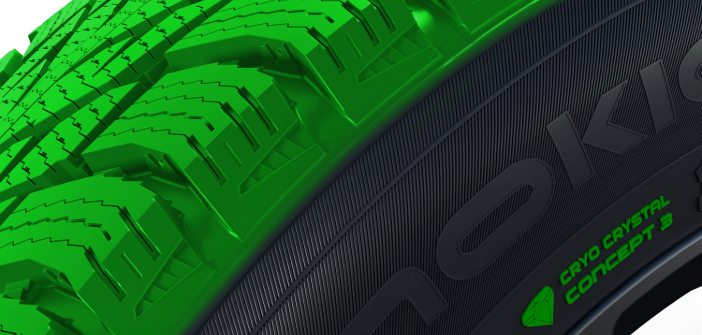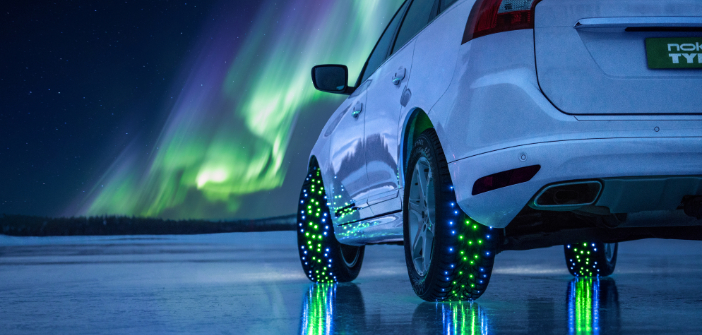Nokian Tyres believes that the development of self-driving vehicles will impact every area of development, including tires. It suggests that through instrumentation of tires, the capabilities of CAVs can be greatly improved. For example, when conditions such as icy roads or aquaplaning are experienced, ‘smart tires’ will be instrumental in informing vehicle control systems of hazards.
“If a car does not have an active driver to ensure that the tires are safe to use, safety needs to be measured in another way,” said Mika Penttilä, head of digital technology for Nokian Tyres.
When the information that is received from tires is combined with weather data, for example, the vehicle’s onboard information system can form a picture of the prevailing driving conditions and adjust the driving accordingly. The company also stated that monitoring of tire wear, inflation pressure and the temperature inside the tire will be invaluable. For example, an increase in the inside temperature may be an early indication of tire damage, enabling it to be addressed before it causes a dangerous situation on the road.
“No matter how smart your car is, tires are the only link between the car and the road,” commented Jukka Kasi, senior vice president of products and marketing for Nokian Tyres.
The company also posits that smart tires will enable new tire-related service models that can be utilized even before self-driving cars ever reach widespread adoption. By monitoring tire wear, service needs can be pre-empted and, according to Kasi, the first step is to notify the driver of tire wear.
“The tire can relay the wear data to the onboard information system, which notifies the driver that the tires can be safely used for another three months. At the same time, the system instructs them to contact the nearest tire retailer and provides their contact information. This is similar to how current cars can notify the driver that they are running out of fuel and provide navigation guidance to the nearest service station.”
The company noted that while TPMS sensors are already well-known to consumers, more advanced technology has so far been reserved for professional use. For example, Nokian’s Intuitu system is a concept developed for agriculture and contracting tires that combines embedded sensors and a mobile app for data collection. However, Kasi believes that solutions like Intuitu will soon become commonplace in consumer use: “Smart tires will first become common on electric vehicles, since they have large tires and lots of sensors and links to the tires. This will happen in about five years.”




